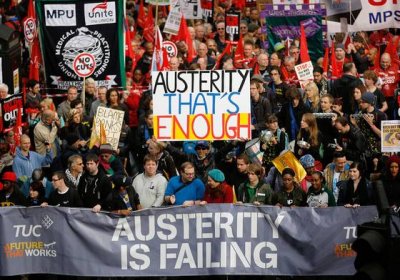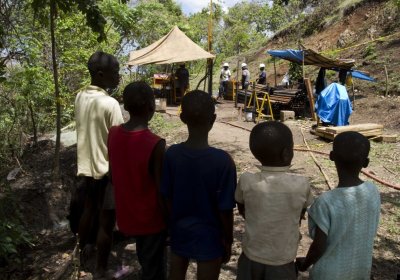For the second time in three months, a CP Rail train carrying toxic and flammable hydrocarbons has derailed in the city of Calgary, in Alberta province.
On September 11, eight railway wagons carrying close to one million liters of a highly flammable gasoline product (diluent) used in the pipeline transport of tar sands bitumen derailed in the Inglewood neighbourhood.
Roger Annis
In the small hours of July 6, just after midnight, a train hauling 73 cars of petroleum products derailed and exploded in the centre of the town of Lac Megantic, Quebec.
A large number of the rail cars caught fire and exploded in huge fireballs. The centre of the town was razed and the rail cars were still burning 36 hours later.
France’s National Assembly and Senate have voted to extend the country’s military intervention in Mali. A resolution passed both houses of parliament on April 22 with a single vote against.
Three days later, the United Nations Security Council approved Resolution 2100, creating a policing mission (known as MINUSMA) starting July 1. Its projected size is 11,200 soldiers and 1440 police.
France perpetrated two large deceptions in its military intervention into Mali in January. These have been universally presented as true in mainstream media reporting.
The first was that the unilateral decision to invade Mali on January 11 was hastily made. France said it was prompted by imminent military threats by Islamic fundamentalist forces against the Mali's south where the large majority live.
“France is in Mali for the long haul.” That was the headline of France’s daily newspaper Le Monde on February 4. The newspaper's front page, as well as pages 2 and 3, were devoted to a discussion over “what next” for France in Mali.
France, the former slave power of west Africa, has poured into Mali with a vengeance in a military attack launched on January 11.
French warplanes are bombing towns and cities across the vast swath of northern Mali, a territory measuring some one thousand kilometres from south to north and east to west. French soldiers in armoured columns have launched a ground offensive, beginning with towns in the south of the northern territory, some 300 kilometres north and east of the Malian capital of Bamako.
A social and political rights movement of indigenous people is rising across Canada and making international headlines. Protests by the “Idle No More” movement began last month and continue to grow.
The movement has rallied daily across the country in shopping malls, at US border crossings and on major railway lines. Three days ago, it compelled Canadian Prime Minister Stephen Harper to climb down from his refusal to meet with indigenous leaders to discuss their very deep concerns.
A popular movement against tar sands oil production and pipeline transport is on the rise and gathering steam in Canada.
Its biggest expression so far came on October 22 when 4000- 5000 people rallied in front of the British Columbia legislature to send a forceful message to the tar sands industry and its political representatives. “No tar sands pipelines across BC! No oil tankers in coastal waters!” read the lead banners.
About 200,000 people marched in London, Glasgow and Belfast on October 20 against the austerity programs of British Prime Minister David Cameron's government.
The trade unions that called the actions put the numbers of participants at: London 150,000, Glasgow 10,000 and Belfast 10,000. Marchers were of all ages and backgrounds — trade union members, students, families affected by cuts to health and social services and women's rights advocates, among others.
Women and girls are among the hardest hit by the anti-working-class policies of Britain’s Conservative-Liberal Democrat coalition government.
A report published in The Guardian earlier this year showed that rising taxes and cuts to social spending have hit women three times as hard as men.
Women aged 50-64 have been hit hardest by rising unemployment since the coalition came to power. It is up 31% compared to an overall rise of 4.2% in the country (to 2.6 million people).
Tens of thousands of demonstrators took to Montreal's streets on August 22 for the monthly protest march of Quebec's student movement.
The movement has organised big marches on the 22nd of each month since March of this year.
The march was an impressive display of militancy and determination just 12 days before the September 4 provincial election. Some members of the radical Broad Coalition of the Association for Student Union Solidarity (CLASSE) student association said that 100,000 people took part.
People and governments across Latin America are rising up against foreign mining companies in a wave of revolt generating alarm among investors and their political operatives in the imperialist governments.
In Haiti, United States and Canadian gold mining companies are rubbing their hands over the riches that they believe await them. A recent study by Haiti Grassroots Watch estimates up to US$20 billion, at gold’s current price of $1600 an ounce, lies in the ground.
- Previous page
- Page 2
- Next page





